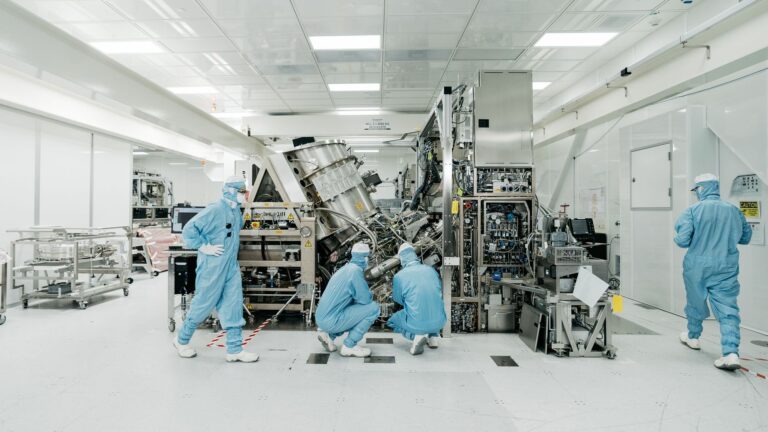The newspaper De Telegraaf broke the story first, citing unidentified sources and stating that the ministries involved had called the initiative “Operation Beethoven”.
Economic Affairs Minister Micky Adriaansens declined to comment on all parts of the paper’s report, but in an interview, she acknowledged that she will visit ASML CEO Peter Wennink in The Hague on Wednesday as part of ongoing talks.
“I don’t know if they would leave They want to grow. And they want to grow in such an amount, it puts a pressure on our infrastructure. That’s why we’re talking to them very intensively. Because we want to understand, is it something we can solve?”
Micky Adriaansens, Economic Affairs Minister
The story echoes statements made by ASML CEO Peter Wennink in January, when he cautioned that his company was heavily reliant on skilled foreign labor after anti-immigrant parties made significant gains in the 2023 elections.
ASML declined to comment on Wednesday. However, Wennink expressed alarm at an event in The Hague that the Netherlands’ business climate was deteriorating.
“Some of the elements that made us a great company are under pressure,” he said, citing more regulation and plans to eliminate a tax incentive for highly educated immigrants.
Potential constraints on foreign students
Approximately 40% of ASML’s 23,000 employees in the Netherlands are not Dutch. Europe’s largest technology corporation sources parts from all around the world, but currently assembles its machines in Veldhoven, Netherlands, before delivering them to major computer chip manufacturers.
ASML dominates the market for lithography systems, which are used to produce chip circuitry. It is now undergoing one cycle of growth and expects to require more in the coming years as worldwide demand for chips grows.
Shell and Unilever left the Netherlands in recent years due to a negative shift in Dutch tax law.
Another issue being considered by parties hoping to establish a right-wing administration following the election is limiting the number of foreign students who can attend Dutch universities – a critical supply of labour for the country’s software industries.
“The consequences of limiting labour migration are large, we need those people to innovate. If we can’t get those people here, we will go somewhere where we can grow.”
Peter Wennink, ASML CEO
Though it would be impossible for the corporation to relocate its headquarters, De Telegraaf cited France as a prospective location for a company expansion, citing a single source.
Chipmakers around the world are investing billions of dollars to establish new plants, fueled by the growing use of semiconductors in everyday devices and generous subsidies from the United States and the European Union aimed at keeping the West ahead of China in the race for cutting-edge technology.
